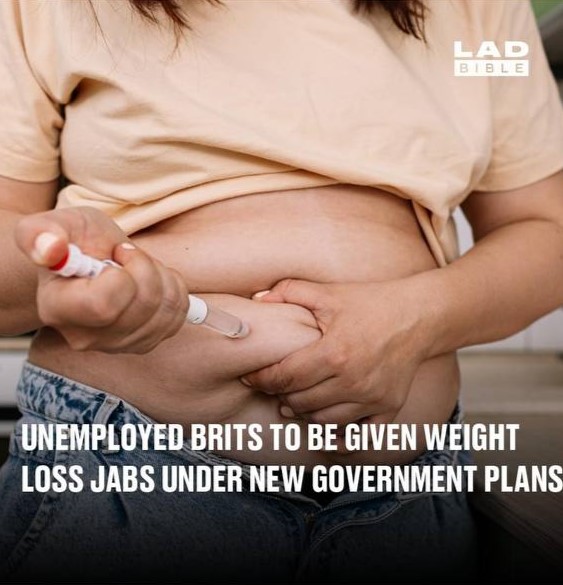Health secretary Wes Streeting believes that obesity is a factor negatively affecting the UK’s economy
The government could be set to introduce weight loss jabs to those out of work to help them get back on their feet and into employment.
According to health secretary Wes Streeting, who cited ‘widening waistbands’ as a growing issue in the UK’s job market, new weight-loss medicine could be given to people to get them back in shape to pursue employment, among other benefits.
Revolutionary medicines such as Ozempic or Mounjaro (which are FDA approved for diabetes, not weight loss) are taking the pharmaceutical market by storm and have been suggested as potential fixes to the country’s economy and the NHS being overworked.

Weight loss medicines could be the solution for the UK’s economy, according to the health secretary (Getty Stock Photo)
The 41-year-old government official announced the plans via the Telegraph, following news that the government had announced a £279 million investment from the world’s largest pharmaceutical company, Lilly.
Streeting wrote for the publication: “Our widening waistbands are also placing significant burden on our health service, costing the NHS £11 billion a year – even more than smoking. And it’s holding back our economy.
“Illness caused by obesity causes people to take an extra four sick days a year on average, while many others are forced out of work altogether.”
The announcement, which took place at an international investment summit hosted by Prime Minister Keir Starmer, also included real-life trials of weight loss jabs and how they impact unemployment levels.
An official study will be carried out in Greater Manchester by Health Innovation Manchester with Lilly, and it will determine if the medicines actually do impact unemployment and the NHS.

It is believed that obesity is a contributing factor to the UK’s suffering job market (Getty Stock Photo)
The health secretary added that this will ‘open the NHS up’ to focus ‘more closely with life sciences‘, as they work to find effective treatments and with patients benefitting from these changes.
Labelling the potential benefits as ‘monumental’ in tackling obesity, he added: “For many people, these weight-loss jabs will be life-changing, help them get back to work, and ease the demands on our NHS.”
Streeting added that it wouldn’t solely be up to them though, as the individual would have to take ‘healthy living more seriously’.
A specialist in obesity policy and researcher at the MRC epidemiology unit at the University of Cambridge, Dr Dolly van Tulleken, explained to BBC Radio 4’s Today show that there are issues to tackle when it comes to the approach, including ethical and financial considerations.
She explained: “Such as looking at people, or measuring people based on their potential economic value, rather than primarily based on their needs and their health needs.
“It’s incredibly important that people in the UK access healthcare based on their health need rather than their potential economic value.”

Streeting says it is not solely up to medicine to save those that are overweight and unemployed, as they must make the effort too (Getty Stock Photo)
It was also highlighted that the government wouldn’t be able to cover the population which qualifies for this treatment, as the 49,000 people treated by the specialist weight management services is a far cry from the millions that could be given the medication.
She sided with Streeting though, further saying: “We know from across so much research… how popular these interventions are. People want the government to act. They want to live in a healthy environment; he is absolutely on the side of public.”
Former Conservative health minister Lord Bethall admitted that they ‘got it wrong’ in the past when it came to obesity, saying: “We misread the public mood; people want help from government – the ‘nanny state’ thing was a distraction.”Featured Image Credit: Getty stock photos


 When Jammy arrived at Marin Humane, one of the first things everyone noticed was his adorable smile and bubbly personality. The second thing they noticed
When Jammy arrived at Marin Humane, one of the first things everyone noticed was his adorable smile and bubbly personality. The second thing they noticed
 Kayla Sargeant was doing things around the house and had the front door open, letting in some air. She
Kayla Sargeant was doing things around the house and had the front door open, letting in some air. She